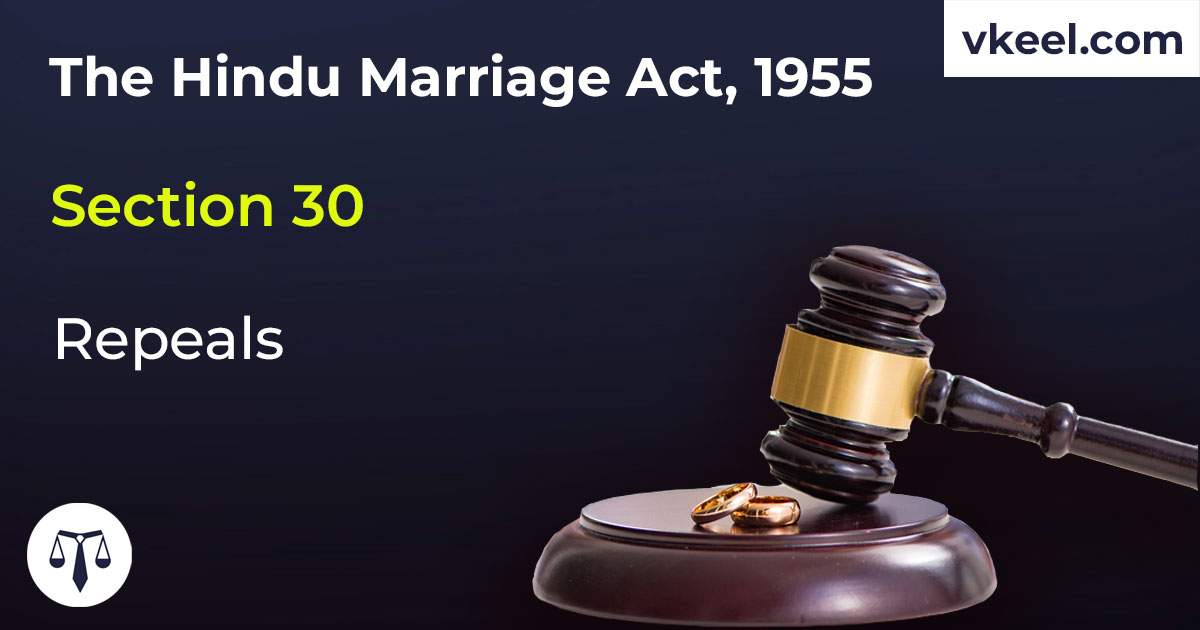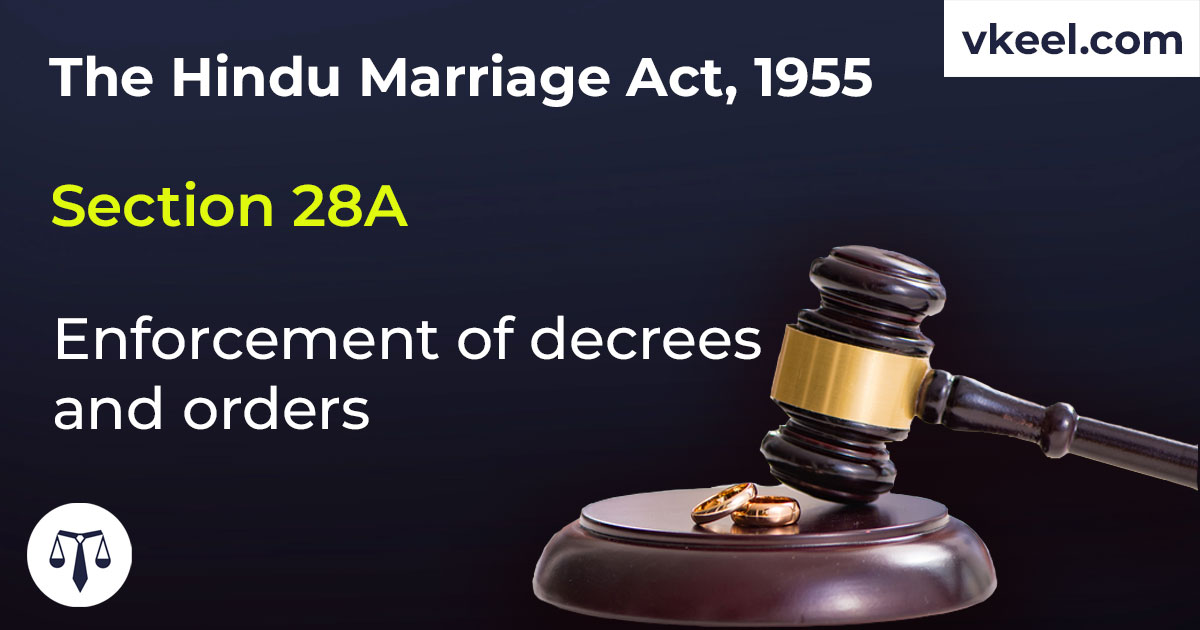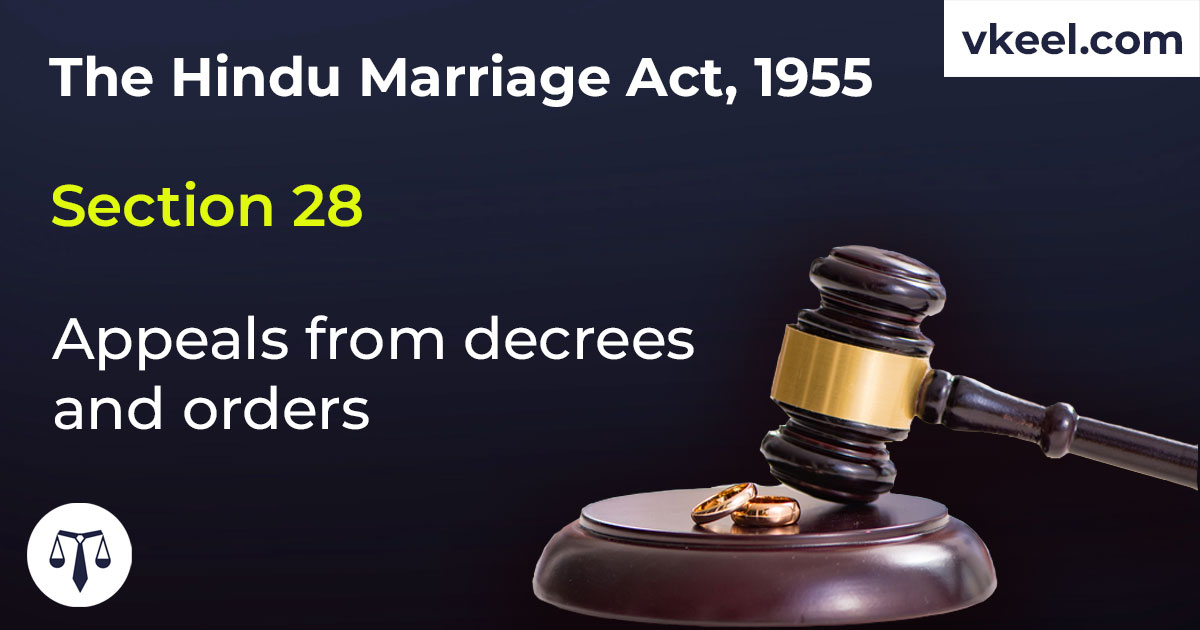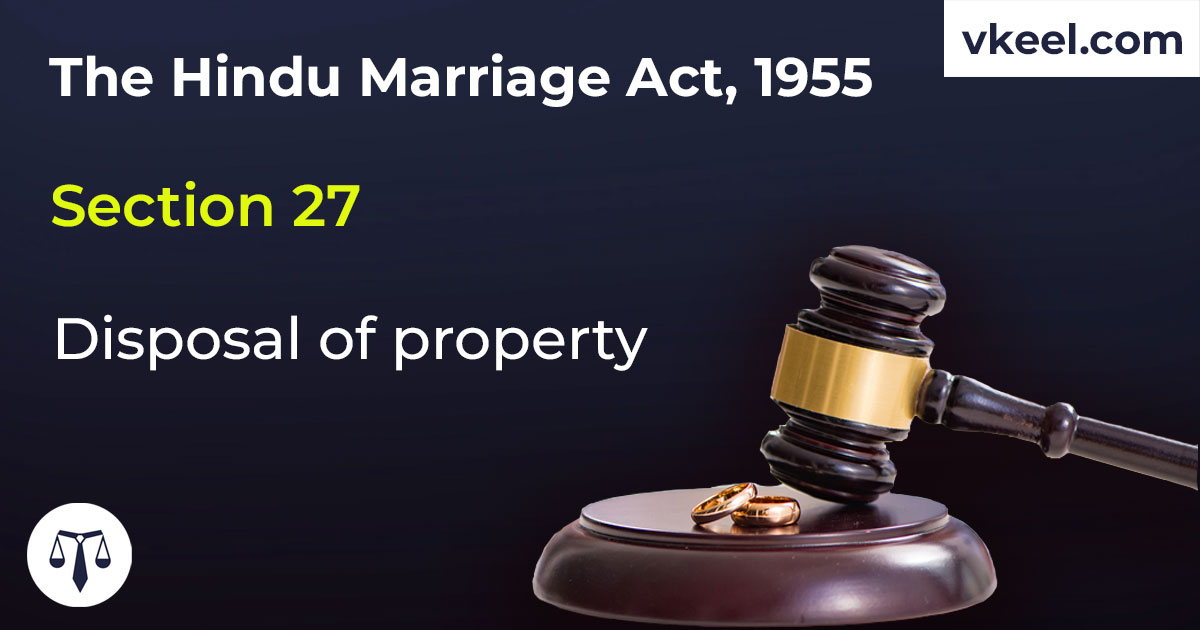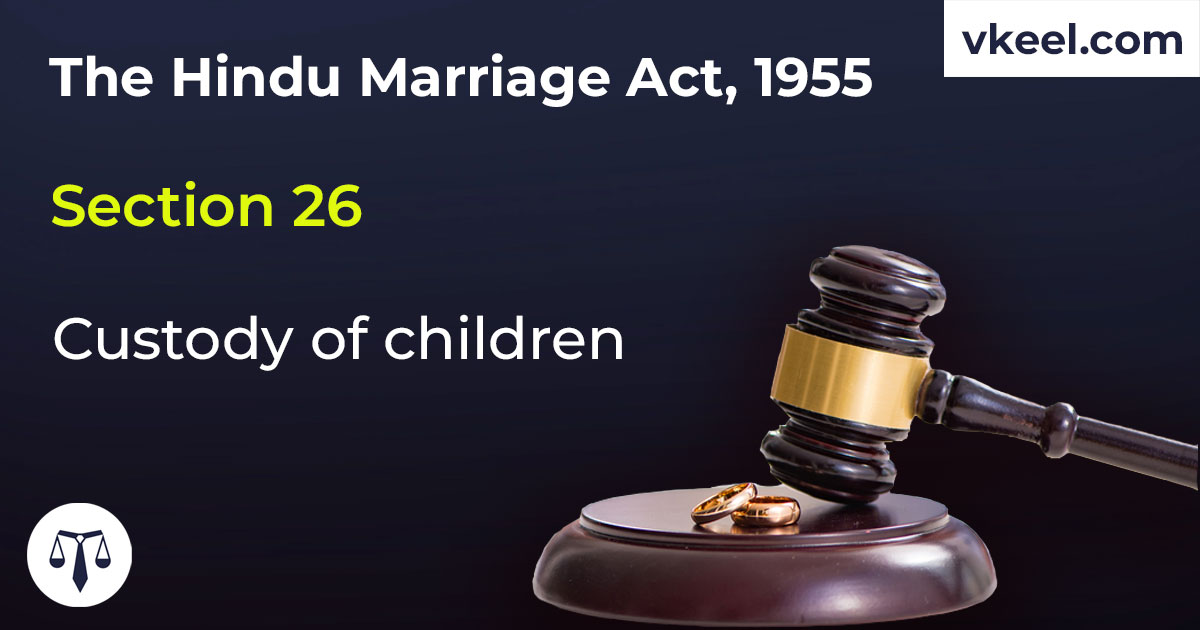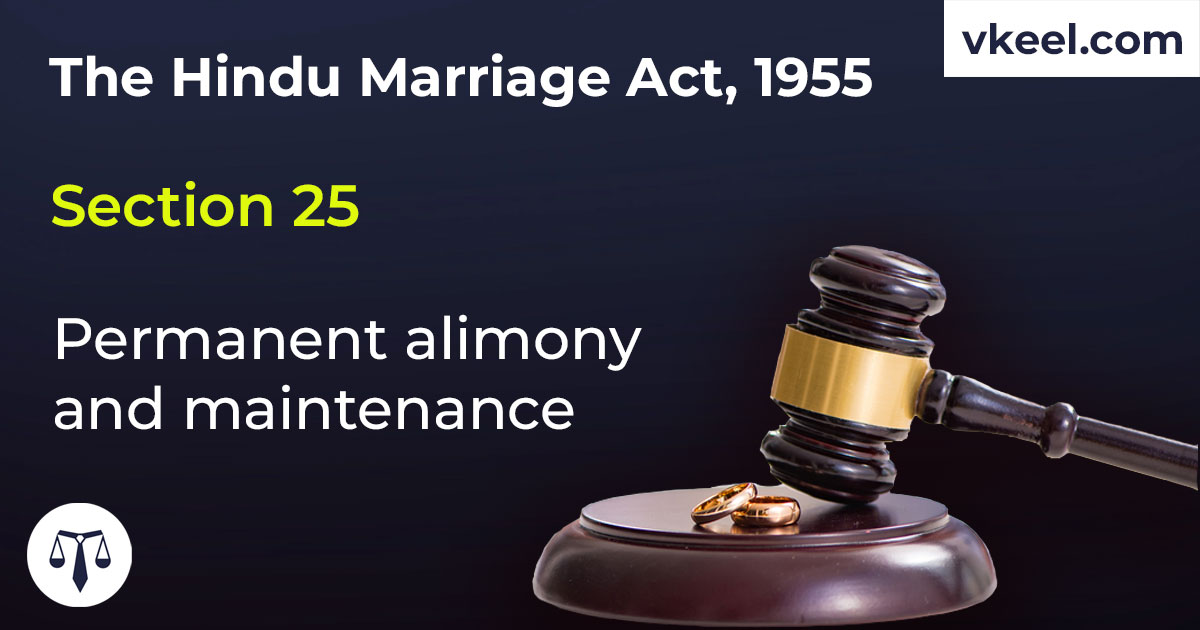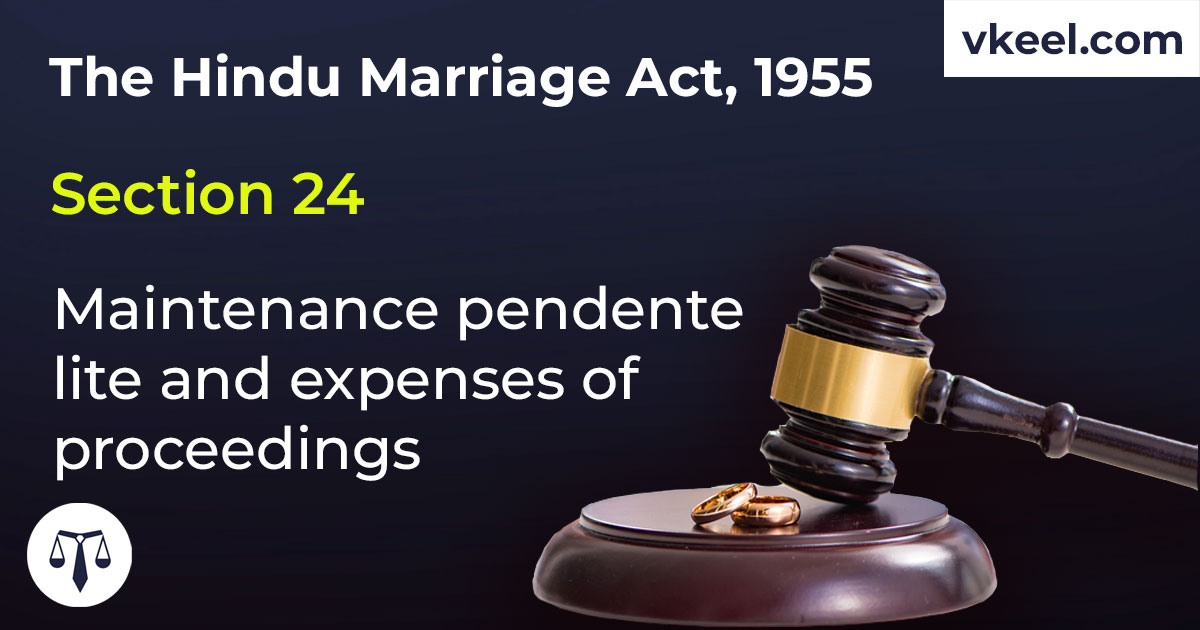Section 30 Hindu Marriage Act 1955 – Repeals
By Vkeel Team
Table of Contents
Description
“Section 30 Hindu Marriage Act 1955”
Rep. by the Repealing and Amending Act, 1960 (58 of 1960), s. 2 and the First Schedule (w.e.f. 26-12-1960).
Consequences of the Repeal of Section 30 Hindu Marriage Act 1955
The repeal of Section 30 Hindu Marriage Act 1955 has had far-reaching consequences for the Hindu community in India. This section of the Act allowed for the dissolution of a marriage on the grounds of mutual consent. The repeal of this section has made it much more difficult for couples to end their marriages, as they are now required to prove that the marriage has broken down irretrievably.
The repeal of Section 30 has had a significant impact on the rights of Hindu women in India. Prior to the repeal, women had the right to seek a divorce on the grounds of mutual consent. This allowed them to end a marriage that was no longer working without having to prove that the marriage had broken down irretrievably. The repeal of this section has taken away this right, leaving women with fewer options when it comes to ending a marriage.
The repeal of Section 30 has also had an impact on the rights of Hindu men in India. Prior to the repeal, men had the right to seek a divorce on the grounds of mutual consent. This allowed them to end a marriage that was no longer working without having to prove that the marriage had broken down irretrievably. The repeal of this section has taken away this right, leaving men with fewer options when it comes to ending a marriage.
The repeal of Section 30 has also had an impact on the rights of children in India. Prior to the repeal, children had the right to seek a divorce on the grounds of mutual consent. This allowed them to end a marriage that was no longer working without having to prove that the marriage had broken down irretrievably. The repeal of this section has taken away this right, leaving children with fewer options when it comes to ending a marriage.
The repeal of Section 30 has also had an impact on the rights of other family members in India. Prior to the repeal, family members had the right to seek a divorce on the grounds of mutual consent. This allowed them to end a marriage that was no longer working without having to prove that the marriage had broken down irretrievably. The repeal of this section has taken away this right, leaving family members with fewer options when it comes to ending a marriage.
In conclusion, the repeal of Section 30 Hindu Marriage Act 1955 has had far-reaching consequences for the Hindu community in India. It has taken away the right of individuals to seek a divorce on the grounds of mutual consent, leaving them with fewer options when it comes to ending a marriage. This has had a significant impact on the rights of Hindu women, men, children, and other family members in India.
Examining the Reasons Behind the Repeal of Section 30 Hindu Marriage Act 1955
Section 30 Hindu Marriage Act 1955 allowed for the dissolution of a marriage on the grounds of mutual consent. However, in 2018, the Supreme Court of India struck down this provision, citing that it was unconstitutional. This article will examine the reasons behind the repeal of Section 30 Hindu Marriage Act 1955.
The primary reason for the repeal of Section 30 was that it was seen as being in violation of the fundamental right to life and personal liberty as enshrined in the Indian Constitution. The Supreme Court held that the provision was unconstitutional as it allowed for the dissolution of a marriage without any consideration of the interests of the parties involved. This was seen as being in violation of the right to life and personal liberty as it did not take into account the interests of the parties involved in the marriage.
The Supreme Court also held that Section 30 was in violation of the right to equality as enshrined in the Indian Constitution. The provision allowed for the dissolution of a marriage without any consideration of the interests of the parties involved. This was seen as being in violation of the right to equality as it did not take into account the interests of the parties involved in the marriage.
Furthermore, the Supreme Court held that Section 30 was in violation of the right to privacy as enshrined in the Indian Constitution. The provision allowed for the dissolution of a marriage without any consideration of the interests of the parties involved. This was seen as being in violation of the right to privacy as it did not take into account the interests of the parties involved in the marriage.
Finally, the Supreme Court held that Section 30 was in violation of the right to dignity as enshrined in the Indian Constitution. The provision allowed for the dissolution of a marriage without any consideration of the interests of the parties involved. This was seen as being in violation of the right to dignity as it did not take into account the interests of the parties involved in the marriage.
In conclusion, the repeal of Section 30 Hindu Marriage Act 1955 was due to its violation of the fundamental rights to life, personal liberty, equality, privacy and dignity as enshrined in the Indian Constitution. The Supreme Court held that the provision was unconstitutional as it allowed for the dissolution of a marriage without any consideration of the interests of the parties involved.
Description Source: indiacode
Disclaimer:
The information provided in the article is for general informational purposes only, and is not intended to constitute legal advice or to be relied upon as a substitute for legal advice. Furthermore, any information contained in the article is not guaranteed to be current, complete or accurate. If you require legal advice or representation, you should contact an attorney or law firm directly. We are not responsible for any damages resulting from any reliance on the content of this website.

